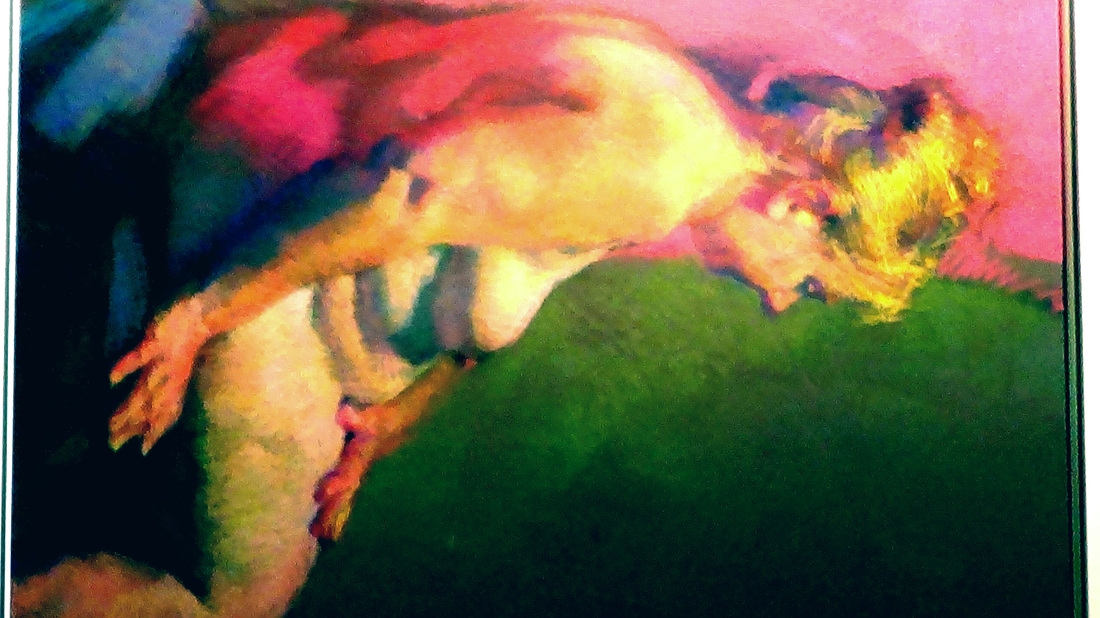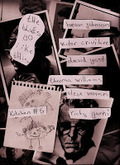An Elegy
There were nights in Switzerland
when you passed through towns
whose names you could pronounce back then.
The odd spelling gave you trouble.
Even in your own language
you could never decide what vowel went where.
In the end you used them all at once
like Lear crying that his old age
was the fault of the wind.
Reading aloud was difficult
and you could never hold the lyrics in your head
long enough to sing.
You told me once there was a deeper sound.
Something like a flightless bird
in a burrow of grass.
We spent days in the deer-parks
where the overgrowth of shrub-life shed
a thick mulch on the walkways
through tiny, swollen moons
of holly-berries and brittle leaves.
A blackbird skitting by like a memory.
And I still walk there, now and again,
and I check, each chain of steps,
the featherless burrows. Wet with infant rain.
Desire
Basilides considered this planet the lowest heaven.
And from what we know of him, through Hippolytus,
he believed that only a few
would rise any higher:
those already blessed;
those already containing
a spark of divine fire.
But there’s desire still
and I’ve often wondered
why I had spent so long looking
up at that bird, with its sage brush
of red plumage and its springing legs
as it searched through winter berries on a high tree.
The branches there were so fine. So thin. So green.
And the wind of November rocked so violently
that a larger bird could never have settled.
It would have split the wood and struck down on the earth
of this lowest heaven. Leaving spheres of skin and red light
swaying. Almost close enough to the ground.
Almost, though not quite.
Silence In The Hippodrome
Today, I remember sadness;
having missed a ride while trying
to sleep through last night’s drunkenness.
Today there’s silence in the hippodrome
and sprigs of springtime jasmine grow
around the feet of empty benches there.
The more pleasant joys of Rome; racing
on stoney yellow circuits, tugged by a trotting bay.
Today all these things are being abandoned.
In spring I’m colder than December and I feel
somehow desperately alone; empty of horse-tug
of thigh on flank and the chariot’s bounce.
Not today, though soon, they’ll hold
down the summered velvet of that exquisite
equine body; full of bright air and dignity.
And I wonder how it feels to kill a horse;
to physically push a hollow tube into a beating vein
to watch barbiturates seep in like apathy;
to see her blink, lashes long as children’s are,
to know she has nowhere else to go; no more
circles left to race with the hard orbit of her breath.
I am already nothing at all; but I love
things that are wild, and are free; things that turn
up the dusty earth with a digging hoof.
Still, you tell me, these are times of austerity.
Who can afford to watch the horses play and run
in the hippodrome like a shimmer of muscled bronze?
We who’ve lost so much:
faith, security, old, old wisdoms.
We who can no longer afford beauty.
We who must close the hippodromes;
lay down all our fine horses in open pits; and cover
their poisoned bodies in blankets of lime.
There were nights in Switzerland
when you passed through towns
whose names you could pronounce back then.
The odd spelling gave you trouble.
Even in your own language
you could never decide what vowel went where.
In the end you used them all at once
like Lear crying that his old age
was the fault of the wind.
Reading aloud was difficult
and you could never hold the lyrics in your head
long enough to sing.
You told me once there was a deeper sound.
Something like a flightless bird
in a burrow of grass.
We spent days in the deer-parks
where the overgrowth of shrub-life shed
a thick mulch on the walkways
through tiny, swollen moons
of holly-berries and brittle leaves.
A blackbird skitting by like a memory.
And I still walk there, now and again,
and I check, each chain of steps,
the featherless burrows. Wet with infant rain.
Desire
Basilides considered this planet the lowest heaven.
And from what we know of him, through Hippolytus,
he believed that only a few
would rise any higher:
those already blessed;
those already containing
a spark of divine fire.
But there’s desire still
and I’ve often wondered
why I had spent so long looking
up at that bird, with its sage brush
of red plumage and its springing legs
as it searched through winter berries on a high tree.
The branches there were so fine. So thin. So green.
And the wind of November rocked so violently
that a larger bird could never have settled.
It would have split the wood and struck down on the earth
of this lowest heaven. Leaving spheres of skin and red light
swaying. Almost close enough to the ground.
Almost, though not quite.
Silence In The Hippodrome
Today, I remember sadness;
having missed a ride while trying
to sleep through last night’s drunkenness.
Today there’s silence in the hippodrome
and sprigs of springtime jasmine grow
around the feet of empty benches there.
The more pleasant joys of Rome; racing
on stoney yellow circuits, tugged by a trotting bay.
Today all these things are being abandoned.
In spring I’m colder than December and I feel
somehow desperately alone; empty of horse-tug
of thigh on flank and the chariot’s bounce.
Not today, though soon, they’ll hold
down the summered velvet of that exquisite
equine body; full of bright air and dignity.
And I wonder how it feels to kill a horse;
to physically push a hollow tube into a beating vein
to watch barbiturates seep in like apathy;
to see her blink, lashes long as children’s are,
to know she has nowhere else to go; no more
circles left to race with the hard orbit of her breath.
I am already nothing at all; but I love
things that are wild, and are free; things that turn
up the dusty earth with a digging hoof.
Still, you tell me, these are times of austerity.
Who can afford to watch the horses play and run
in the hippodrome like a shimmer of muscled bronze?
We who’ve lost so much:
faith, security, old, old wisdoms.
We who can no longer afford beauty.
We who must close the hippodromes;
lay down all our fine horses in open pits; and cover
their poisoned bodies in blankets of lime.



